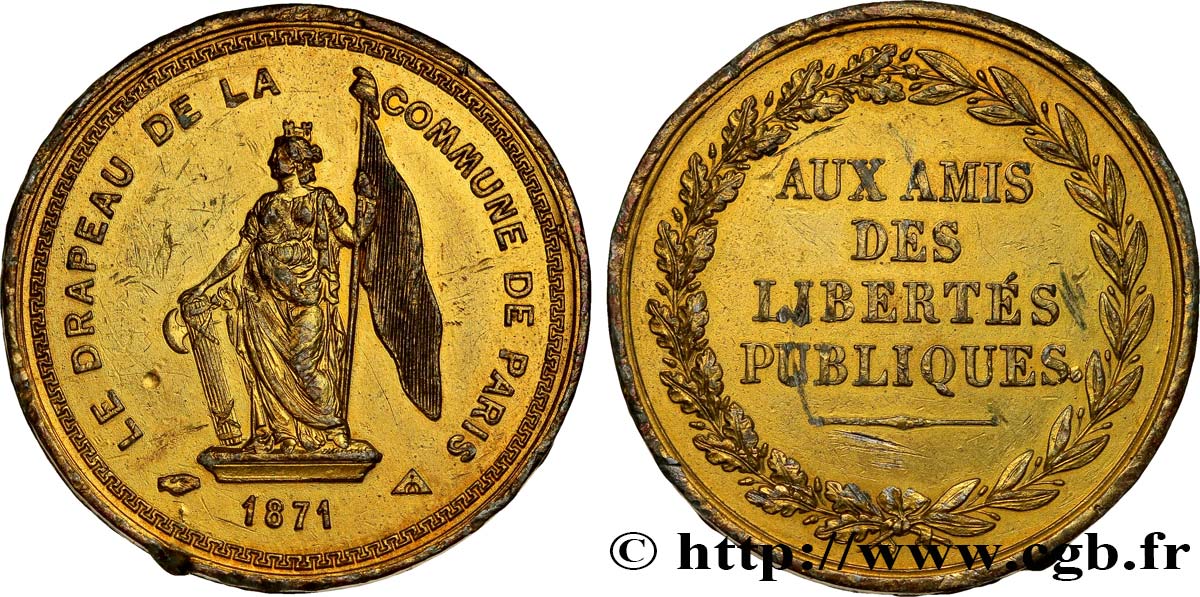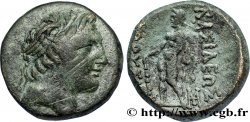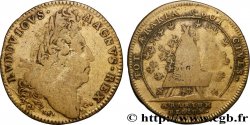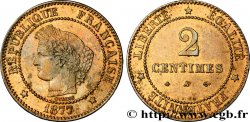недоступный.
Товар уже продан в нашем интернет-магазине (2020)
Цена: : 100.00 €
Товар уже продан в нашем интернет-магазине (2020)
Цена: : 100.00 €
Тип Médaille de la Commune
Дата: 1871
Монетный двор / Город: 75 - Paris
Металл: gilt tin
Диаметр: 41 mm
Ориентация осей монеты: 12 h.
Вес: 40 g.
Век: lisse
Комментарии о состоянии
Médaille en plomb doré, avec de beaux reliefs mais des petits coups, plus importants sur la tranche
Лицевая сторона
Аверс: легенда: LE DRAPEAU DE LA COMMUNE DE PARIS.
Аверс: описание: La ville de Paris personnifiée, tenant un drapeau surmonté du bonnet phrygien et un faisceau.
Обратная сторона
Реверс: легенда: AUX AMIS / DES / LIBERTÉS / PUBLIQUES.
Реверс: Описание: Légende en 4 lignes dans une couronne de chêne et de lauriers.
Комментарий
La Commune de Paris est une période insurrectionnelle de l'histoire de Paris qui dura un peu plus de deux mois, du 18 mars 1871 à la « Semaine sanglante » du 21 au 28 mai 1871. Cette insurrection contre le Gouvernement, issu de l'Assemblée nationale qui venait d'être élue au suffrage universel, ébaucha pour la ville une organisation proche de l'autogestion. Elle est en partie une réaction à la défaite française de la guerre franco-prussienne de 1870 et au siège de Paris.
.
The Paris Commune was an insurrectionary period in the history of Paris that lasted a little over two months, from March 18, 1871, to the \\\"Bloody Week\\\" of May 21-28, 1871. This insurrection against the government, which emerged from the National Assembly, which had just been elected by universal suffrage, outlined for the city an organization close to self-management. It was partly a reaction to the French defeat in the Franco-Prussian War of 1870 and the siege of Paris.
.
The Paris Commune was an insurrectionary period in the history of Paris that lasted a little over two months, from March 18, 1871, to the \\\"Bloody Week\\\" of May 21-28, 1871. This insurrection against the government, which emerged from the National Assembly, which had just been elected by universal suffrage, outlined for the city an organization close to self-management. It was partly a reaction to the French defeat in the Franco-Prussian War of 1870 and the siege of Paris.








 Cообщить об ошибке
Cообщить об ошибке Распечатать страницу
Распечатать страницу Отправить мой выбор
Отправить мой выбор Задать вопрос
Задать вопрос Consign / sell
Consign / sell
 Информация
Информация















